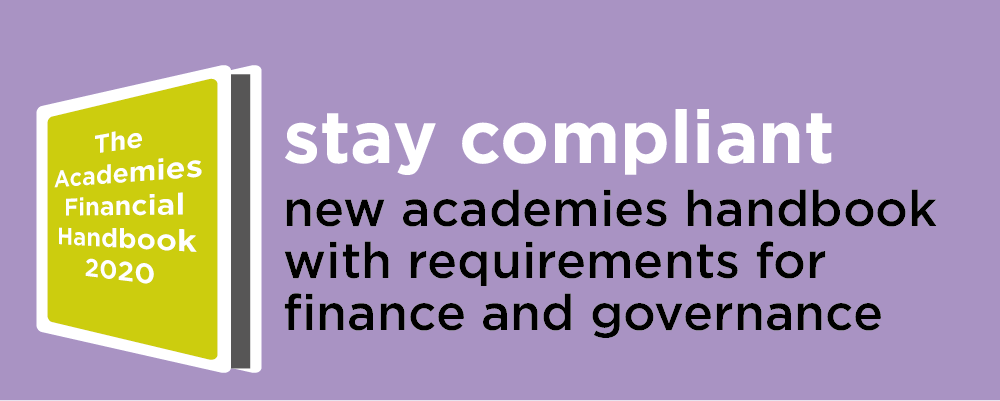The Academies Financial Handbook 2020 (AFH) is effective from 1 September 2020.
There are some key changes which may require action by academies and other clarifications which should be reviewed to ensure Trusts remain compliant. It is important that finance staff and those involved with governance are familiar with the requirements of the AFH.
Some of the key changes are:
Governance
- Members cannot be employees of a Trust. Previously an employee could be a Member if allowed under the Trust’s Articles of Association; however, this will not be the case from 1 March 2021. Before that date, the structure of the board of members of Trusts should be reviewed and the necessary changes to the composition of Boards made.
- Trustees have responsibility for a Trust’s financial sustainability and ability to operate as a going concern. This is not a new requirement and has always fallen within the responsibilities of the trustees as directors under company law.
- It is now a requirement for a Trust to appoint a clerk to support the board of trustees.
Executive Team
- The AFH now specifies that the Accounting Officer and Chief Financial Officer (CFO) should be employees of a Trust. Whilst in most Trusts this will be the case, there may be some situations where these roles are filled by consultants and these arrangements must now be reviewed. ESFA approval is required where a Trust is proposing to fulfil either of the roles with non-employees, in exceptional circumstances.
- The AFH now suggests that CFOs should maintain CPD and larger trusts should consider appropriate qualifications when appointing a CFO.
Scrutiny
Over the past few years, there has been a move towards strengthening internal scrutiny arrangements.
There are a few specific changes this year:
- The option for internal scrutiny to be carried out by an external auditor has been removed. Trusts that currently fulfil the internal scrutiny requirement with their external auditor will therefore need to revisit their arrangements.
- Internal scrutiny must cover both financial and non-financial controls and risk management procedures. The AFH highlights that Trusts can draw on other individuals or organisations where specialist non-financial knowledge is required.
- The ESFA has published an internal scrutiny good practice guide which will be a useful reference points in reviewing Trusts’ arrangements (https://www.gov.uk/government/publications/academy-trust-financial-management-good-practice-guides/internal-scrutiny-in-academy-trusts).
General controls
- It is now a ‘must’ requirement for a Trust to maintain a fixed asset register.
- Estimates of pupil numbers should be reviewed and challenged termly.
- The AFH encourages the use of an integrated approach to curriculum and financial planning. The ESFA has published a guide on this subject.
- A Trust must now publish on its website, in a separate readily accessible form, the number of employees whose benefits exceeded £100,000 in £10,000 banding.
- Whistle-blowing procedures must now be published on a Trust’s website.
- The AFH restricts the purchase of alcohol from Trust funds, except where it is to be used in religious services.
Audit and risk committee
The AFH lists the responsibilities of the committee in respect of the external audit, including:
- Reviewing the external auditor’s plan;
- Reviewing the annual report and accounts;
- Reviewing the auditor’s findings and a management’s responses to those findings;
- Assessing the effectiveness and the resources of the external auditor to provide a basis for reappointment or re-tendering; and
- Producing an annual report to the Board of Trustees and the Board of Members on the committee’s conclusions.
If you would like to discuss anything related to the contents of this article, please contact Thomas Emmett on 01245 453847 or email Thomas at Thomas.emmett@birkettlong.co.uk.
